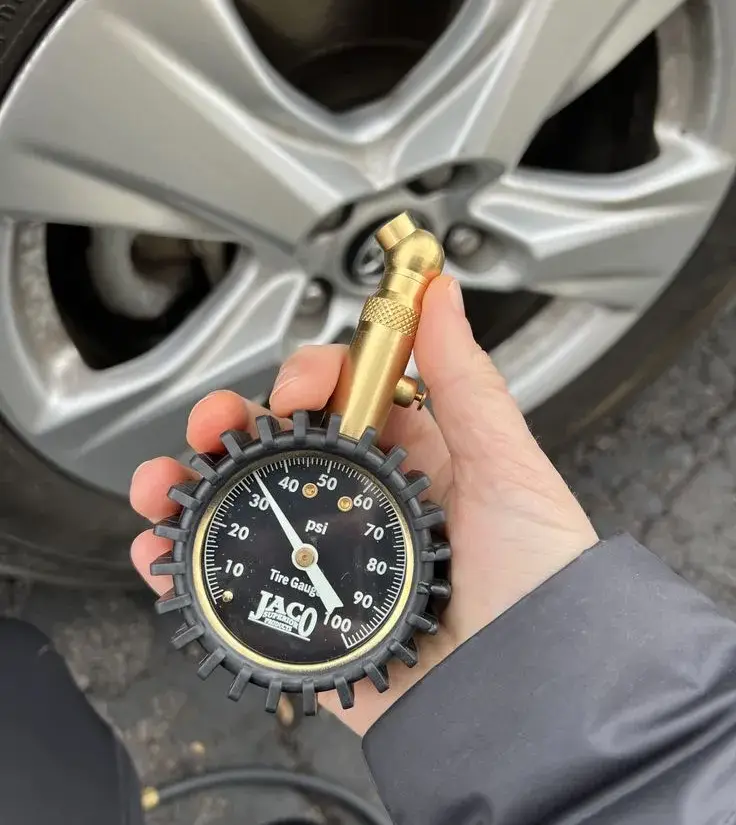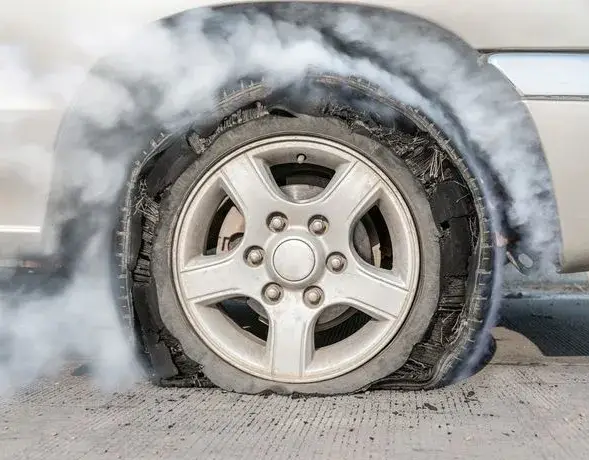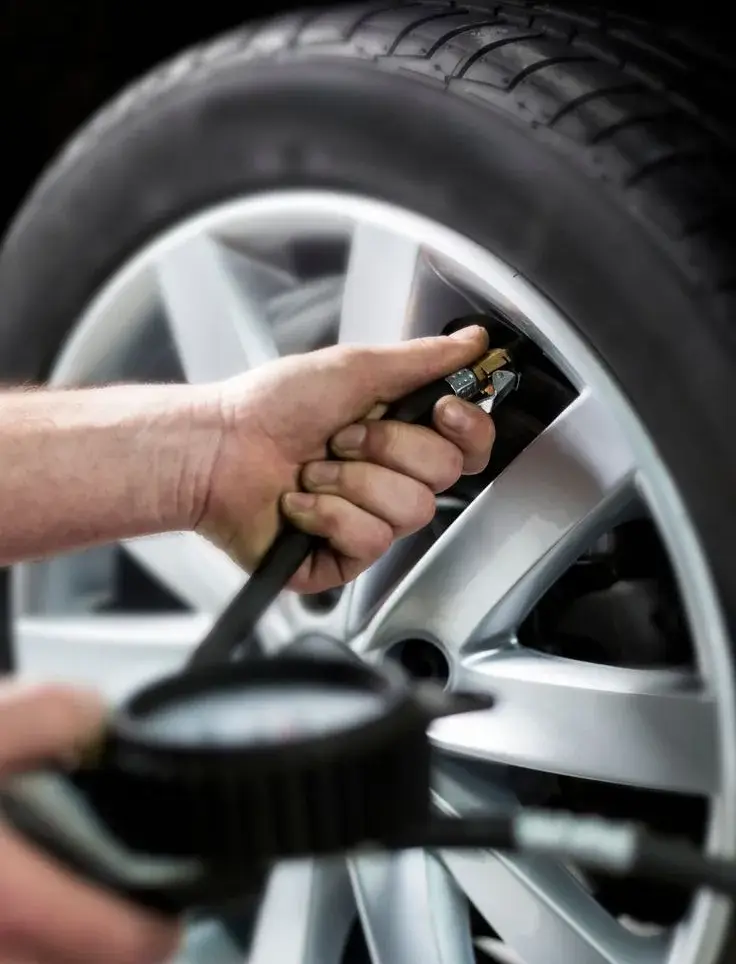Kuwait is famous for its extreme weather, blazing summers, and scorching asphalt that can reach temperatures above 70°C. In such intense conditions, something as simple as Tire Pressure becomes one of the most critical factors in road safety, driving comfort, and overall vehicle performance. Many drivers in the GCC overlook Tire Pressure, yet it plays a much bigger role in Kuwait than in most other countries—mainly because of the intense حرارة الصيف, long highways, and demanding desert routes.
This comprehensive guide of Formulawheel explores why Tire Pressure matters, how Kuwait’s climate affects your tires, what can go wrong if the pressure is incorrect, and how you can protect your vehicle during the hottest months. Whether you drive a sedan, SUV, pickup, luxury car, or commercial vehicle, this article will help you understand everything you need to know about maintaining the correct Tire Pressure in Kuwait’s extreme summer.
The Science Behind Tire Pressure and Heat Expansion
To understand why Tire Pressure is so important during Kuwait’s summer, you must understand basic heat expansion physics. As the temperature increases, the air inside a tire expands, causing Tire Pressure to rise. Even for a perfectly healthy tire, Kuwait’s extreme climate can cause:
- A 10°C rise = 1 PSI increase in pressure
- A 40°C rise = 4 PSI increase, enough to trigger instability
- Black asphalt raises temperatures far above the air temperature
For example, if your tires are filled to 35 PSI early in the morning at 20°C, they can easily reach 40–41 PSI after one hour of driving on 70°C asphalt. That sudden increase creates unnecessary stress on the tire’s rubber, steel belts, and sidewalls.
This is why Tire Pressure must be monitored more frequently in Kuwait than in colder countries.
How Kuwait’s Climate Intensifies Tire Pressure Issues
Kuwait is located in one of the hottest regions on Earth. During July and August, temperatures regularly exceed 50°C, and the asphalt—especially on highways—can reach temperatures above 75°C. This creates perfect conditions for Tire Pressure fluctuations.
Key climate factors affecting Tire Pressure:
- Extreme summer heat (حرارة الصيف) expands the air inside the tire
- Hot asphalt increases friction, generating internal tire heat
- Long-distance driving raises tire temperature by another 10–20°C
- Sand and dust reduce tire traction, causing extra flexing
- Sudden rain after weeks of heat increases road surface stress
No matter what vehicle you drive, the environment in Kuwait guarantees that your Tire Pressure will change throughout the day.
Why Tire Pressure Matters So Much in Kuwait’s Summer
Maintaining correct Tire Pressure is not just a recommendation—it is essential for survival on Kuwait’s roads. Below are the most important reasons.
Preventing Tire Blowouts on Hot Roads
A blowout is one of the most dangerous events that can happen on a moving vehicle. It is especially deadly on:
- Abdaly Road
- Salmi Road
- Subbiya Road
- Wafra Road
- Kabd Desert Road
When Tire Pressure becomes too high due to heat, the tire’s structure becomes stiff and brittle, making it more vulnerable to sudden failure. Most summer accidents related to tires are caused by:
- Overinflation due to rising temperatures
- Heat buildup inside underinflated tires
- Excessive speed on long, empty highways
- Driving with low tread, causing the sidewall to overheat
Proper Tire Pressure is your first line of defense against catastrophic blowouts.
Increasing Traction and Road Grip
Kuwait’s asphalt becomes soft, oily, and slippery in extreme heat. Overinflated tires have a smaller contact patch with the road, reducing grip. Meanwhile, underinflated tires flex too much and lose stability.
Correct Tire Pressure provides:
- Improved tire-to-road contact
- Superior braking performance
- Safer cornering
- More stability on sandy and dusty highways
- Better traction during sudden rain
For SUV drivers who travel through desert routes (رحلات الصحراء), maintaining the correct Tire Pressure is even more important.
Enhancing Fuel Efficiency
Incorrect Tire Pressure significantly increases fuel consumption. Here’s how:
Low Tire Pressure:
- Increases rolling resistance
- Forces the engine to work harder
- Reduces fuel efficiency by up to 10%
High Tire Pressure:
- Improves fuel economy temporarily
- But reduces traction and increases wear
- Creates a dangerous overinflation risk
By maintaining the correct Tire Pressure, you can save fuel whether you’re commuting in Kuwait City or traveling toward Abdali, Wafra, or the Kuwaiti-Saudi border.
The Impact of Kuwait’s Roads on Tire Pressure
Kuwait’s road conditions play a major role in Tire Pressure changes.
Urban Roads:
- Stop-and-go traffic
- Sudden braking
- High friction
- Increased tire temperature
Highways:
- Long distances at high speeds
- Constant heat increase
- Higher internal tire pressure
Desert Roads:
- Sand reduces grip
- Tires sink into a soft surface
- More flexing → more heat
Correct Tire Pressure prevents excessive heat buildup on all these road types.
How Incorrect Tire Pressure Damages Your Tires
Incorrect Tire Pressure causes long-term damage that can shorten a tire’s lifespan by 40%.
Damage from Low Pressure:
- Excessive sidewall flexing
- Internal heat buildup
- Fast tread wear on edges
- Risk of tire separation
Damage from High Pressure:
- Excessive center tread wear
- Reduced shock absorption
- Higher risk of punctures
- The tire becomes more brittle
Maintaining proper Tire Pressure helps your tires last longer, which is crucial because tires in Kuwait are more expensive than in many other countries.
How Often Should You Check Tire Pressure in Kuwait?
Due to temperature extremes:
- Check Tire Pressure once a week during the summer
- Check before every long trip
- Check after driving on hot asphalt for hours
- Check when carrying heavy loads
- Check before going to the desert
Always check Tire Pressure when tires are cold, early morning.
Recommended Tire Pressure for Kuwait
Below are general safe PSI ranges:
Sedans: 32–35 PSI
SUVs / 4×4: 33–38 PSI
Pickup trucks: 35–40 PSI
For desert trips, lower PSI is used for soft sand, but it must be reinflated before returning to the road.
The Importance of TPMS in Kuwait
Modern cars have TPMS (Tire Pressure Monitoring System). In Kuwait, TPMS is crucial because:
- Tires lose air faster
- Heat causes sudden fluctuations
- Blowouts happen without warning
Never ignore the TPMS warning light during حرارة الصيف.
Tips to Maintain Proper Tire Pressure in Kuwait’s Heat
- Park in shade whenever possible
- Avoid high speeds on extremely hot days
- Don’t overload the vehicle
- Check Tire Pressure regularly
- Use heat-resistant tires (GCC-spec)
- Avoid aggressive driving
- Rotate tires every 10,000 km
These steps help ensure stability and safety in Kuwait’s extreme heat.
Final Conclusion: Why Tire Pressure Truly Matters in Kuwait
Tire Pressure is not a small detail; it is a major safety factor in Kuwait’s extreme summer weather. Between the heat, long-distance highways, sand, dust, and harsh asphalt, your tires endure some of the toughest conditions in the world. Therefore, monitoring Tire Pressure regularly is essential for:
- Preventing blowouts
- Reducing fuel costs
- Protecting tire lifespan
- Maintaining traction
- Ensuring safe handling
Whether you drive daily in مدينة الكويت or travel on remote desert highways, maintaining the correct Tire Pressure is the simplest and most crucial step to ensure safety in حرارة الصيف. Ready to upgrade your tires for Kuwait’s scorching summers? Browse our massive selection of heat-resistant tires.
Shop now: formulawheel
FAQ — Tire Pressure in Kuwait’s Summer
- How often should I check Tire Pressure in Kuwait?
At least once per week, and before every long trip.
- What happens if Tire Pressure is too high in summer?
It can cause blowouts, reduce traction, and make your vehicle unstable.
- Should Tire Pressure be lower in summer?
No. It should follow the manufacturer’s PSI. Just check it more often.
- Does Kuwait’s asphalt affect Tire Pressure?
Yes. Hot asphalt increases tire temperature, causing higher pressure.
- Is TPMS enough to monitor Tire Pressure?
Useful—but you still need manual checks for accuracy.
- What is the safest PSI for SUVs in Kuwait?
Typically 33–38 PSI, depending on vehicle model.
- Why do tires wear out faster in Kuwait?
Extreme heat, long-distance driving, and hot asphalt accelerate wear.
- Can Tire Pressure affect fuel consumption?
Yes. Incorrect Tire Pressure can increase fuel usage by up to 10%.
- Do desert trips require different Tire Pressure?
Yes. Lower PSI for sand, higher PSI for highways.
- What is the biggest danger of incorrect Tire Pressure?
Tire blowouts are especially common on Kuwait’s long, high-speed highways.



